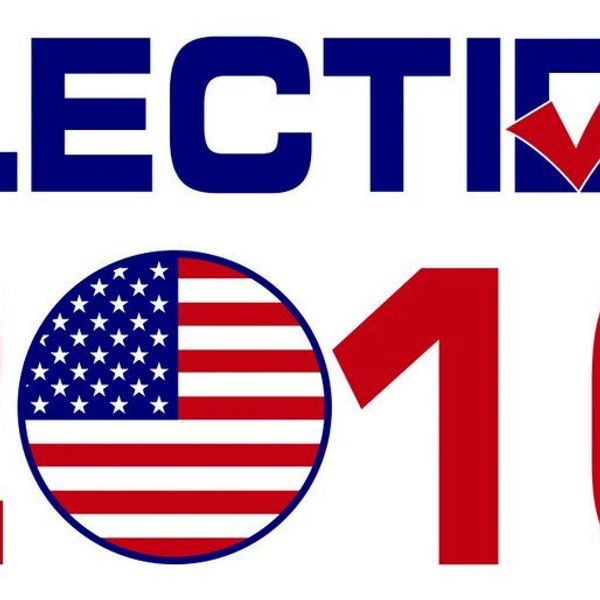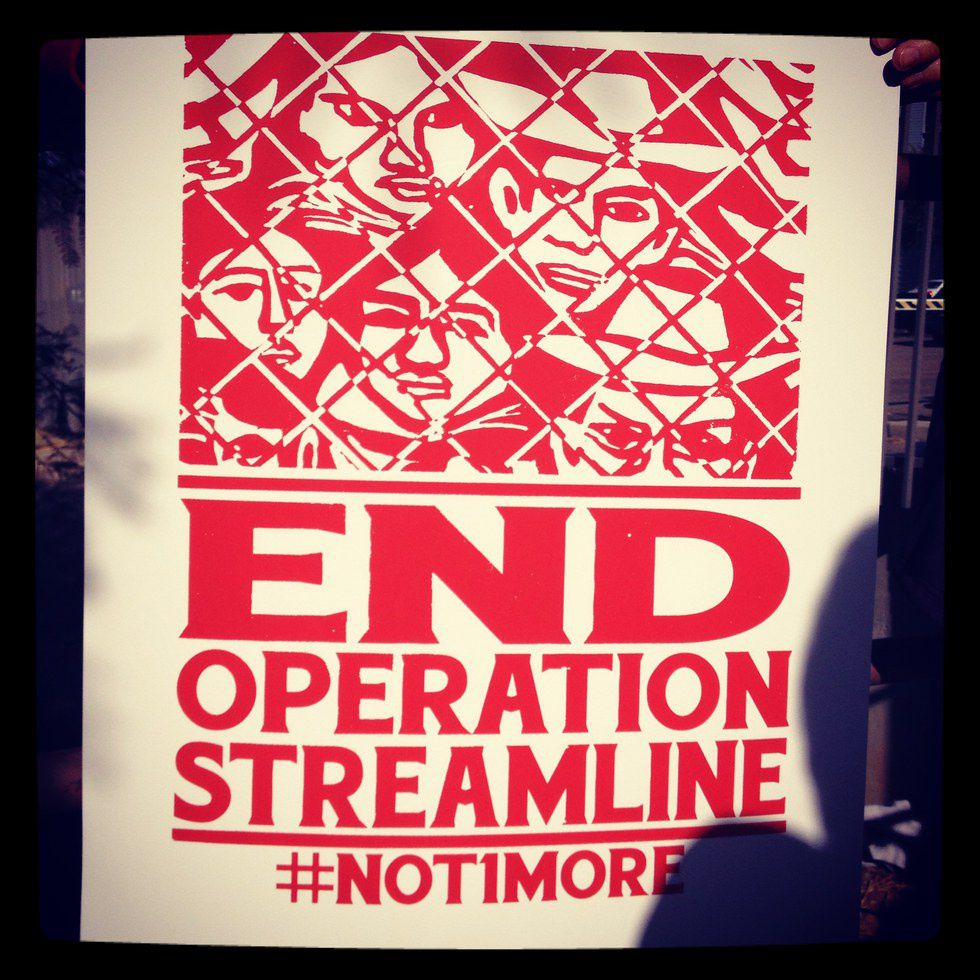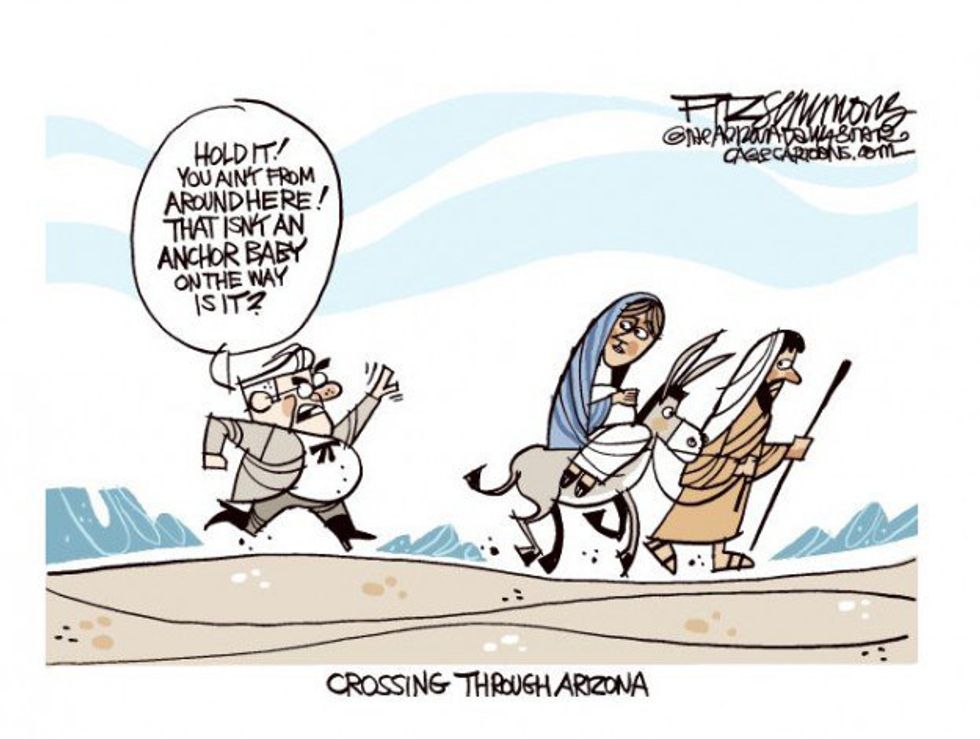Immigration.
Being raised in the south in an area colloquially known as the “Ark-La-Tex”, (a merging of Arkansas, Louisiana and Texas, for those of you uninitiated), immigration has always been an extremely relevant topic for me. Mexico is just south of us, and its culture and influence is on vibrant display here in Louisiana.
Alex Hensley has lived in the Highland neighborhood for the past 6 years. She recently graduated from LSUS with a sociology degree and is currently working in the restaurant industry. She’s worked as an intern at the Yellow House, a local faith-based intentional community in Shreveport's Highland Area, for several years. She’s not currently involved with Yellow House at this time, but wants to pursue her Master’s degree so she can do social work here in Shreveport and abroad. Last year, I attended one of the Yellow House meetings to hear Alex and a group of her friends discuss their recent trip to Mexico. “When you go on a trip like that, you see poverty. And when you’re in a community who cares about these issues (Yellow House), you realize that this is how you want to respond to the world: By being together,” she told me. “Yellow House was formed by a group of young people looking for houses with no money and they ended up talking to some really generous people. They partnered with Community Renewal, and started doing internships out of that. I did the internship, and I’ve been working at that for the past year.”
"We took a trip every December," Hensley said. "On the first trip, we went to DC and learned about Anacostia, a historic neighborhood with high crime rates, and visited the Holocaust museum. We were trying to build a sense of community and camaraderie.” Then, in December 2014, they visited the Arizona-Mexico border.
I decided to speak with Alex because she has a direct relationship with the immigration issue that so many of our political discussions are steeped in today. She’s seen it all firsthand. She told me that it has become entirely personal for her after experiencing it up close.
We’ve heard a lot lately about what illegal immigrants are supposedly doing to us. They’re supposedly taking our jobs, and Mexico is to blame! “They’re bringing drugs, they’re bringing crime, they’re rapists.” Sound familiar? But what about injustices done to the Mexican people? Is there a reason they are so desperate to cross the border into the States? They want more than just traditional American opportunity, they want the opportunities that many of us take for granted because we stole them. Many of Mexico’s best and brightest cross illegally because of U.S.-approved free trade. A lot of migrants are educated and hardworking people who have lost their jobs. “With heated issues like immigration, or Black Lives Matter, you have to look at the whole picture,” Hensley told me. “The NAFTA (North American Free Trade Agreement) and CAFTA (Central American Free Trade Agreement) laws that Bill Clinton pushed about 20 years ago have destroyed crops, especially in Mexico, by importing cheap, genetically modified corn. Importing that kind of cheap food allowed the working conditions to become worse because it allowed these corporations to pay workers much less. So, they can’t take care of their families, so what are they to do? They try to cross the border,” she said. America is the land of opportunity. It looms just north of Mexico, like an enticing pie. You used to have a piece, but the guys just above you took the whole damn thing. Hell, you’d settle for just a bite.
Then there are the atrocities that happen when they do cross. “The cartel preys on migrants. There’s this idea from people who aren’t really informed that they’re all just smuggling drugs in, which is not completely untrue. But the deeper side is that the cartel preys on the vulnerability that migrants looking for a better life have. They threaten their lives or offer money,” Hensley explained. When crossing the border, many migrants pay guides called Coyotes to lead them through dangerous areas. In the past, Coyotes used to be primarily friendly, but now, many of them have been recruited by cartels. The ones who do work for the cartels force migrants to smuggle drugs over the border with threats of violence. “They kind of get stuck in it,” Hensley said.
The path to citizenship can take up to 18 years for some families. People have even died waiting. If that weren’t enough, many migrants are completely displaced if caught and deported–dumped in a country that is not their home. According to Alex, there are hotspots where the cartel waits for these displaced migrants in foreign lands, recruiting them as drug mules. If they even make it across, 80% of migrant women crossing the border are raped. Most will not report being raped after arriving in America, due to the fact that their illegal status means deportation if they contact the authorities, (as if sexual assaults weren’t already hard enough for women to prove). White supremacist vigilante groups murder them. “Border patrol is heavily militarized, and then White supremacist groups will shoot up the watering tanks that have been set up for migrants dying of thirst. They’ll sit at the border and wait for migrants to cross, and kill them just for fun.” Possibly most disturbingly of all, talk of deporting children and ending Birthright citizenship is now being seriously considered by presidential candidate Donald Trump.
When I asked Alex if she thought Neo-Nazi vigilantism would become worse under a Trump presidency, she didn’t hesitate. “Oh yeah. I think Trump has given them permission for this kind of behavior, just by his language. People don’t understand how dangerous he is.” The issues are confusing. Either Trump doesn’t understand the details, or is choosing to be willfully ignorant. America is directly responsible for the influx of illegal border crossings because of the policies we have enacted and our hand in creating poverty and violence. He mentions NAFTA in his speeches, but only to say that it devastated American businesses and, of course, because it reflects negatively on the Clintons. It must be acknowledged that the effects were disastrous not only for us, but for Mexico as well as it created desperation. Liberals, also not understanding the details, bring racism into the mix. Valid, but Trump’s logic needs to be attacked rather than his morality at this point. It’s simply too easy.
If you don’t understand America’s involvement, then you don’t understand why building a giant wall and making Mexico pay for it isn’t simply a "tough guy approach," it’s inherently hypocritical and deeply offensive. “I didn’t realize my own racism toward Central American people until we took the trip. I assumed so much," Hensley admitted. "We have to question our assumptions and not just take what we’re fed.”
A lot of this is about money. Americans feel that they can’t move up and acquire all the money you need because Immigrants are taking their jobs. Capitalism sets us on a path of endless acquisition, and our jobs and income directly relate to how we express love to our families by providing for them. Deep down inside, we know that we evolved to take care of our children personally, and that sacrificing precious bonding time for labor is unnatural. This creates even more tension between races and divides us along class lines. If we begin to look closely, we see that migrants crossing the border illegally feel the same way we do. You’re messing with our lives! That’s not fair! We have a sense of community for our families, but lack a sense of global community. “I think in America, we have a monopoly on truth. We assume we know what’s good for us and everyone else. That we think we know better than everyone else. No other perspectives matter," Hensley stated. "That’s just not true, and it’s hard to open yourself up for reevaluation.” There’s also a war on information. We have Fox News on one end and MSNBC on the other. Liberal and conservative talking heads battle daily over what the real truth is. You can begin to justify any opinion–even if it’s completely false–if you talk long enough, especially to an audience who is already inclined to agree with you. There is a war not just for opinions, but for truth and morality. Like Trump, I believe the Clintons should be held responsible for NAFTA, but his conclusions go off the deep end. “I think he (Trump) has a lot of money, and the issues surrounding immigration involve money," Hensley said. "Operation Streamline is fueled by private prisons. They need people to fill up the rooms, so they created this whole system that’s been ruled unconstitutional twice, yet somehow they still keep going.”
Operation Streamline is a program that tries and incarcerates up to 70 immigrants a day who are chosen at random from lists of deportees. They wait in lines and are sentenced almost instantly, one after the other, to serve time in privately run prisons. Alex and her friends visited Tucson’s Federal Courthouse during their travels to witness the procedure firsthand. The offenses are labeled as felonies. She recounted her surprise to learn that most felonies attributed to illegal migrants are simply prior crossings, not murder or rape. How is this program still operating you may ask? Good question. It began in 2005, under the administration of George W. Bush, and it has cost us an estimated $5.5 billion dollars since. At the proceedings in which Alex was present, there were 15 lawyers present, each being paid $125 an hour of U.S. tax money. In October of 2013, the U.S. 9th Circuit Court of Appeals declared Operation Streamline unconstitutional. Twice. Since then, Tucson courts have made slight changes, most of which are merely semantic, that have allowed Streamline to continue. If we really want to talk seriously about injustice, we cannot continue to ignore this glaring travesty.
Yellow House is, as I mentioned, a faith-based entity, and a wonderful organization. But on further questioning, I learned that Alex has started to disassociate herself with the Christian label. This surprised me because I’ve done the same for several years now and expected her to have a somewhat religious viewpoint on this matter. I asked her how we should tackle the immigration issue from a Christian perspective, especially when, here in the South, being a Christian usually goes hand in hand with conservative politics. “I have to say that I don’t know where I am faith wise, or that I would even consider myself a Christian at this point,” Hensley told me. “A lot of that has to do with what the connotations are of being a Christian and what comes with that. Harmful policies against people and hateful treatment of people that aren’t white or living in other countries. There is a lot of injustice in the world that I haven’t been able to reconcile. What I have learned from being in a Christian faith for so long, I very much appreciate Jesus’ example in the world, and what we did at the border.” Being a Christian in the Bible-belt, it would be difficult to speak out against politicians like Trump–if you can call him that–without restraint. There is an unspoken rule in the Southern Evangelical community that church and state should be separated when speaking from the pulpit when conservative views are challenged, even though that sentiment is ignored when addressing gay rights, abortion, or guns. Often, Romans 13:1 is quoted: "Let everyone be subject to the governing authorities, for there is no authority except that which God has established. The authorities that exist have been established by God." Apparently, many Evangelicals forget this verse when they attend Tea Party rallies. Perhaps they can’t hear the voice of God over their boisterous chanting. Mostly, we feel inspired by our example and figurehead since childhood, Jesus Christ, to be more aggressive when speaking out against social injustice and frustrated when we are met with opposition from the very ones claiming to represent him. “There are some parts of conservatism that I relate to, but what it’s really about is what policies affect people and their lives and their wellbeing. That’s what it comes down to. And I think speaking out against Trump is absolutely essential,” Hensley told me. While at the Border, Alex witnessed a Posada, which is a traditional reenactment of Mary and Joseph’s struggle to find room in the inn directly before the birth of Christ. “It was surreal,” she said. “What if nobody had let them in? Mary and Joseph were migrants. What would have happened if Jesus, one of the most influential figures in the world, had not gotten to live his life because they wouldn’t let his parents in?”
However, regardless of where she’s at spiritually, Alex appreciates the Christian faith and Jesus’ influence in the world. “If you’re really reading the stories, He inspires this love that doesn’t make sense, according to what I know of a Republican Christian American perspective. He loved people that, in his time, were not welcomed or were viewed as negative.” Alex isn’t the only one that feels this way. More and more people who were raised within the Christian faith, myself included, have started to relate to Christ outside of this political haze. We don’t even want to refer to ourselves as Christians, and that’s frankly kind of sad. There are Christians doing marvelous works here, like Yellow House, and in other countries, but the current political landscape makes sharp divides and alienates free-thinkers. Either you should be a Conservative Christian, or a Liberal Atheist. There is no in-between.
What can we do in Shreveport? How is this relevant to us? There are migrants living among us here in Shreveport. It’s not some faceless news story on TV, it affects us here, even if we don’t see it. “People are unknowingly being hateful. It might sound a little fluffy, but just sharing the truth and reading more about the issues will help. I try to share what I learned at the Border as often as I can with whoever I meet. We have to be willing to step outside our comfort zones,” Hensley noted. These are scary times for migrants living in America. If you know someone who is being threatened with deportation, remember that as American citizens, we can claim sanctuary protection by allowing migrants to stay with us in our homes or churches–something politicians like Ted Cruz would like to put an end to. We can also flood our local media with these important topics. Shreveport is an artistic hub of original and groundbreaking ideas.
“We’ll figure it out” Hensley says. “We just gotta walk together.”
























